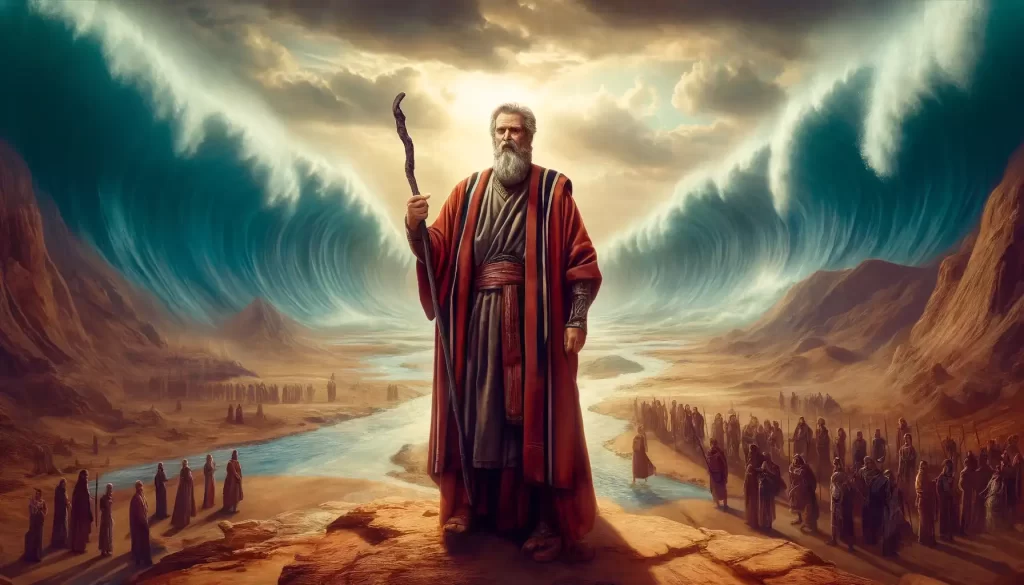
National Association of Christian Ministers Summary Series
Moses is one of the most significant figures in the Bible and is revered by Jews, Christians, and Muslims alike. His story is told primarily in the Book of Exodus, but his influence extends throughout the entire Pentateuch (the first five books of the Bible), known as the Torah in Judaism. Moses is considered a:
prophet,
lawgiver, and the
central figure in the liberation of the Israelites from slavery in Egypt.
According to the biblical account, Moses was born in Egypt during a time when the Israelites, descendants of Abraham, Isaac, and Jacob, were enslaved by the Egyptians. Fearing that the Hebrew population was growing too large and powerful, the Pharaoh ordered all newborn Hebrew males to be killed. Moses’ mother, Jochebed, in an act of desperation, placed him in a basket and set him adrift on the Nile River. The Pharaoh’s daughter discovered the baby and took pity on him, raising him as her own son. Moses was thus spared from the decree of death.
As Moses grew older, he became aware of his Hebrew heritage. One day, witnessing an Egyptian taskmaster beating a Hebrew slave, Moses intervened and killed the taskmaster. Fearing punishment, Moses fled Egypt and settled in the land of Midian, where he married Zipporah and became a shepherd. It was during his time in Midian that Moses encountered a burning bush, through which God revealed Himself and called Moses to be the leader who would deliver the Israelites from bondage.
Returning to Egypt, Moses confronted the Pharaoh and demanded the release of the Israelite slaves. Through a series of ten devastating plagues, including the famous plagues of blood, frogs, and darkness, God demonstrated His power and convinced the Pharaoh to let the Israelites go. The final plague, the death of the firstborn, led to the Pharaoh’s ultimate surrender. The Israelites hurriedly left Egypt in what became known as the Exodus, led by Moses.
The journey of the Israelites was not easy, as they faced numerous challenges, including hunger and thirst in the desert. During these trials, Moses acted as their mediator with God, receiving the Ten Commandments and other laws on Mount Sinai. These laws, known as the Mosaic Law, formed the basis of the Israelites’ covenant with God and became central to their religious and moral framework.
Despite the miracles and guidance, the Israelites often rebelled against Moses and doubted his leadership. In one notable incident, when the Israelites were thirsty and complained to Moses, God instructed him to strike a rock, causing water to flow. However, when they faced another water shortage later on, Moses struck the rock again out of frustration -despite God’s instruction to speak to the rock. This action prevented him from entering the Promised Land.
Moses continued to lead the Israelites through the wilderness for forty years until their journey brought them to the borders of the land of Canaan, the land promised to their ancestors. Before his death, Moses appointed Joshua as his successor and delivered a series of final addresses known as the Book of Deuteronomy.
According to the biblical account, Moses died at the age of 120 on Mount Nebo, overlooking the Promised Land. He is revered as one of the greatest prophets and leaders in the history of Israel, and his legacy reverberates throughout the Abrahamic religions to this day.




